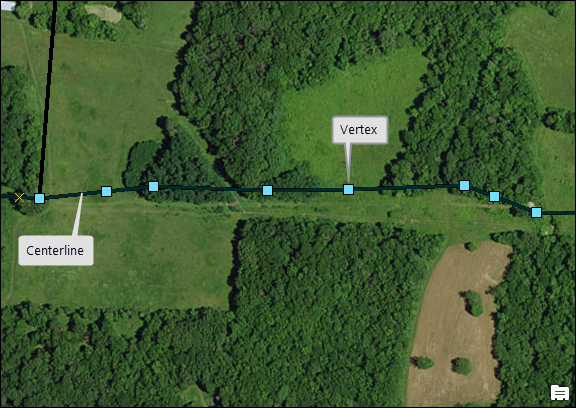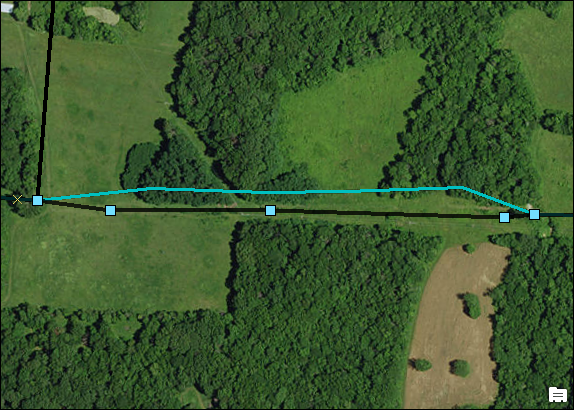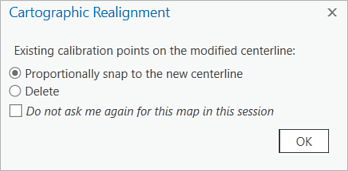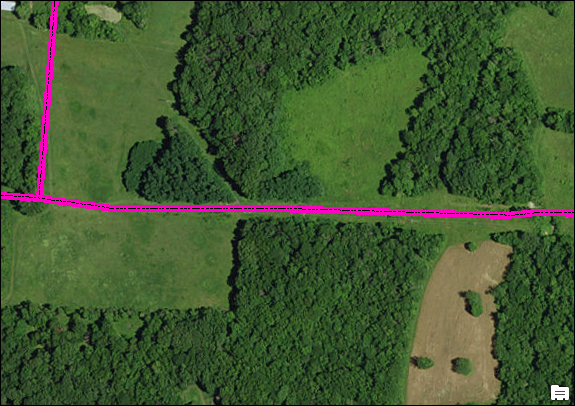Available with Location Referencing license.
You can update route geometry based on aerial imagery, as-built drawings, or input from field data collectors without changing measures by making direct modifications to the centerline. This is known as cartographic realignment. ArcGIS Pipeline Referencing allows you to change the shape of centerlines and preserve the calibration of the underlying routes as they existed before the cartographic realignment was applied. The results are achieved by editing the geometry of the centerlines that are associated with the route.
Note:
The centerline feature class must be visible in the Contents pane to apply cartographic realignment.
- Add the
centerline and network feature class to a map.
You can also open a map in which the centerline and network feature class are already present.
Note:
The information model expects only one centerline at any given location. Make sure that the centerlines used for your edit do not overlap other centerlines in your LRS.
Note:
Traditionally versioned networks must be edited through a direct connection to the geodatabase. Branch-versioned networks, including any network configured with a user-generated route ID, must be edited through a feature service.
- Zoom in to the location of the alignment change.
- Uncheck the network layer in the Contents pane.
- Check the centerline layer in the Contents pane.
- Select the centerline feature for the edit.
- Double-click the centerline's edge.
The selected centerline's vertices appear.

- Edit the centerline's vertices as necessary.
You can add and delete vertices and modify segments. You can also use the geometry editing tools available in Pipeline Referencing.

- After editing the vertices to match the proposed alignment of the route, right-click anywhere on the map and click Finish.
Note:
If there are one or more calibration points in the realigned section, you will be prompted to either delete or proportionally snap the affected calibration point to the new realignment.

Note:
This prompt will be deprecated at the next release of ArcGIS Pro.
- Check the check box next to the network layer in the Contents pane.
The cartographically realigned route appears.

Note:
- After centerlines are updated, the route shapes in all networks are also updated. However, the event shapes for events and locations of the managed intersections are not updated until you run the Apply Event Behaviors and Generate Intersections geoprocessing tools.
Learn more about scenarios for generating and updating intersections
- It is also important to note that when the centerlines are edited, all routes in all networks, across all times, are modified accordingly.
- If conflict prevention is enabled, locks will be acquired on all routes associated with the centerline being edited.
Note:
If a message about acquiring locks or reconciling appears, conflict prevention is enabled.
- After centerlines are updated, the route shapes in all networks are also updated. However, the event shapes for events and locations of the managed intersections are not updated until you run the Apply Event Behaviors and Generate Intersections geoprocessing tools.